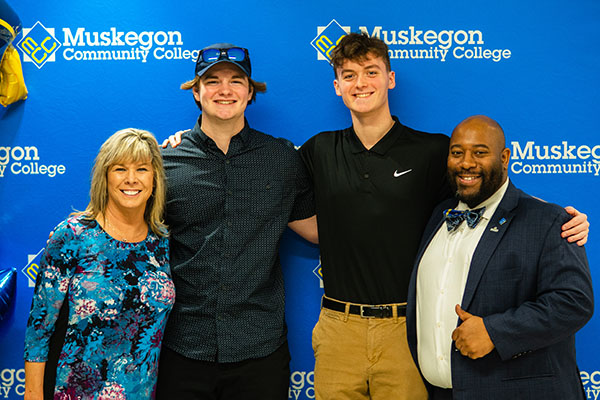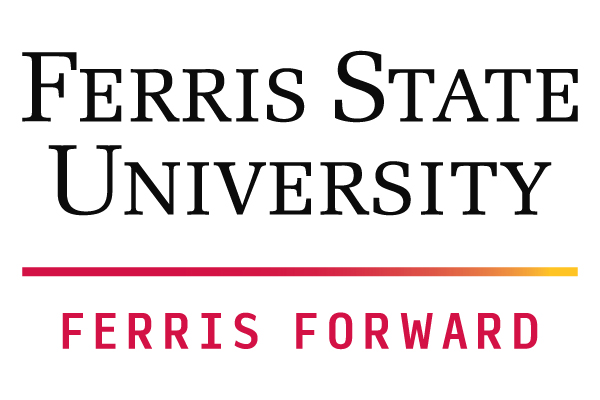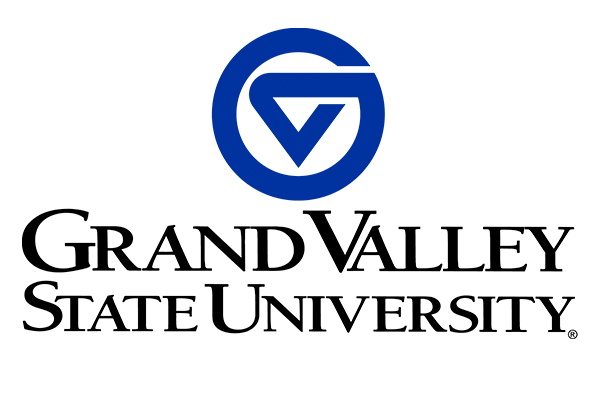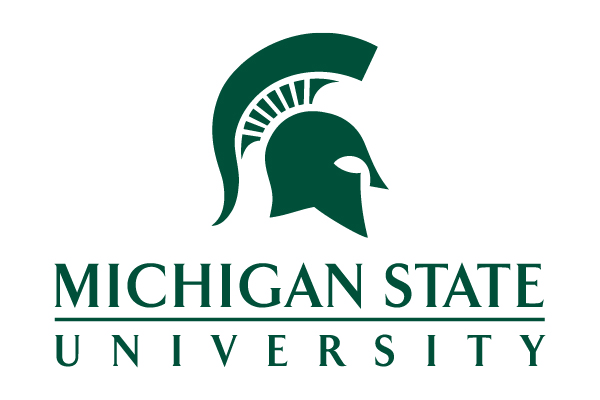Educational Options
Muskegon Community College offers more than 80 degrees and certificates, short-term credentials and a variety of other options to provide our students with a well-rounded education that prepares them for today’s in-demand and emerging career fields. Our faculty are dedicated to providing MCC students with the knowledge and critical thinking skills they will need beyond the classroom.
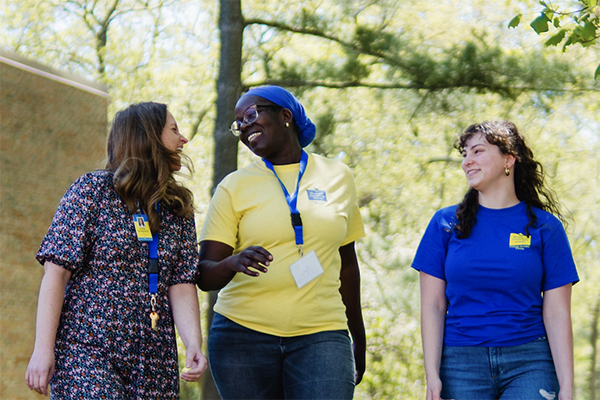
The purpose of articulated credit is to provide a mechanism which will enable advanced technology credit to transfer to Muskegon Community College, thereby granting equivalent college credits to students for identified task competencies achieved in secondary programs.

Not Designed to Transfer
These degrees are focused on specific vocational areas and are designed to prepare students to enter the workforce. This degree is not typically designed as a transfer degree, however individual classes from these degrees may transfer to other colleges or universities.
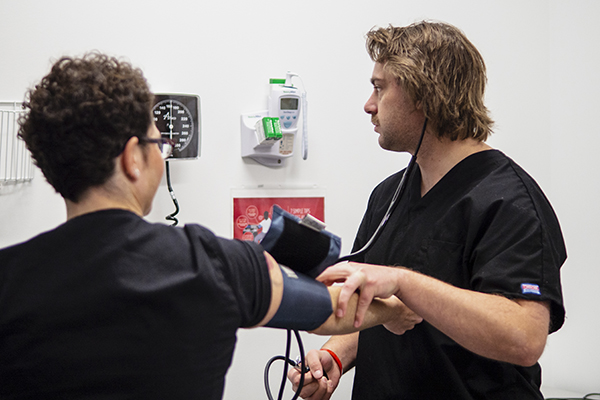
Transferrable Degree
The Mechanical Engineering Associate in Science (AS) degree has been designed to prepare students to transfer as Junior status to bachelor’s degree programs in Mechanical Engineering at participating Michigan colleges or universities.
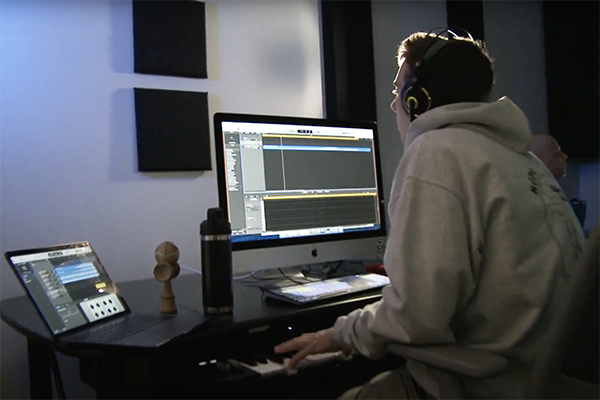
Transferrable Degree
This degree is designed to transfer to a college or university and apply towards its Bachelor’s degree programs. The degree includes liberal arts courses and electives and includes the Michigan Transfer Agreement (MTA).

The MCC Nursing Program offers a career ladder nursing curriculum consisting of the practical nurse diploma and the Associate Degree in Applied Science Nursing (AAS) with the opportunity to enroll concurrently in the Michigan State University or Grand Valley University Bachelor of Science in Nursing (BSN) programs.

This degree is intended to be a terminal degree for paraprofessionals and a foundation for elementary teacher preparation. This degree provides a solid foundation to build into a Bachelor of Science degree in Elementary Education for those wishing to continue their education.
Higher Education Partnership Programs
In addition to the many traditional transfer opportunities available to MCC students, the college also partners with three universities in unique programs allowing occupational students to transfer to a high quality baccalaureate program. In all transfer programs, be sure to see an MCC counselor for details.
Welcome
Welcome to Online Learning! Here at Muskegon Community College, we understand that each of our students comes to college with a diverse set of needs, schedules, and goals. To help you on your own unique educational journey, MCC offers an array of online learning opportunities, programs, and classes. We offer approximately 150 online sections each semester in the following modalities.
Online Asynchronous Classes
Online asynchronous classes do not have a scheduled meeting time or location and are taught entirely online using Blackboard. You will interact with your instructor, classmates, and course content through various learning activities and assessments, and you will be able to do so as your schedule allows. That said, online asynchronous classes have regular deadlines that students must meet, and your instructor may require live or proctored testing (see Student Planning for details). Online asynchronous classes are ideal for self-disciplined learners who are comfortable using technology and want more control over the time and location of their learning.
Online Synchronous Classes
Online synchronous classes are taught entirely online using Blackboard; however, these classes differ from asynchronous classes because they have a required, scheduled meeting time. Online synchronous classes utilize a web-conferencing platform for meetings such as Zoom or Microsoft Teams; therefore, you must have Internet access, a webcam, and a microphone to participate. In addition to the virtual meetings, you will complete learning activities and assessments online following your instructor’s deadlines. Online synchronous classes are ideal for students who want the flexibility of online learning but may also need some instructor support and interaction.
Hybrid Classes
Think of hybrid classes as a combination of online and in-person learning. Much like an online asynchronous class, you will use Blackboard to complete the online course requirements. The difference is that the required, scheduled meetings or exams for hybrid classes happen in person (and sometimes virtually). It is important to ensure that when you register for a hybrid class, the time and place of the classes and exams fit your schedule (all this information is detailed in Student Planning). Hybrid classes are ideal for students who learn best from regular instructor and peer interaction but can also manage completing assignments online.
Preparing for Online Learning
Online Readiness Check
Online learning has many advantages: flexibility, convenience, reduced commute expenses and time, technology skill building, and so much more. This does not mean, however, that online learning is a good fit for all students, and Muskegon Community College encourages each student to honestly evaluate their skills, learning preferences, self-discipline, needs, and competencies before enrolling in an online course. This online readiness check can help you determine if online learning is right for you. And if you still have questions about whether or not you should take an online/hybrid class, we encourage you to make an appointment with a counselor or reach out to an instructor. We want you to be successful!
Online Instruction Readiness Quiz Revised
Welcome – You are just a click away from beginning the Online Readiness questionnaire. Online and hybrid courses are great options for learning, but their unique requirements means that they may not be the best choice for everyone. After completing this short questionnaire, you will be given a score. Use that score to interpret your online readiness.
Technology Check
Depending on your program or course requirements, you may need to know exactly what software is running on your computer and which version. You can test your technology through the Michigan Colleges Online website. Click on the “Is My Technology Ready?” option. Scroll down and click on the “Detect My Technology Now” button to learn about your computer.
FAQ
What classes are offered online?
Go to our Search for Classes page and utilize the 3 ways available to search for classes. Also see courses by Academic Department.
Can I earn an associate degree or certificate 100% online?
Yes. We currently have several online programs. It is possible to earn other degrees 100% online; however, the electives chosen might not be the best fit for the area of study. MCC’s priority is to meet the needs of students, and our counselors are ready to assist you with developing a course of study to meet your needs. You can get online advice though our Online Advising page.
I just registered for an online/hybrid class. Now what?
Congratulations on braving the world of online learning! Your class will be made available either on the start date or earlier depending on your instructor. As the start date nears, check your MCC email for important updates, information, and requirements about the course from your instructor. If textbooks, technology, or other resources are required, you may have to obtain those before the start of class. You should also log into Blackboard through MyMCC a week before the class starts to address any to-do items assigned by your instructor.
Can I use a Chromebook for online coursework?
No, not usually. Chromebooks are not computers and are not compatible with many of the technology requirements needed to use Blackboard, access textbook publisher content, and download certain software. We urge those students with Chromebooks to plan on utilizing the computer and library labs on campus.
What browser should I use for online learning?
Google Chrome. We find that other Internet browsers such as Safari and Internet Explorer do not always interact well with our Learning Management System, Blackboard.
I’m having a problem with my technology. What should I do?
Call the 24/7 Central Help desk number: 1-866-718-5170.
How much time will I spend completing work for an online class?
Plan to spend 8-12 hours on coursework per course per week. Online classes often require more reading and writing than their in-person counterparts, potentially making them more challenging and time consuming. The idea that online classes are easier than in-person classes is a myth.
Do online classes have a separate tuition structure?
No. Tuition for online/hybrid classes is the same as for in-person classes. See registration for tuition information.
How do I know if I need to come to campus for an exam or a test?
Any online section that requires on-campus testing will have a statement about this requirement in the additional notes sections within Student Planning. In Student Planning, you can access the notes by clicking on the section title; a box will appear with all the additional information. Always check the notes in Student Planning before registering for a class.
How will I take exams or tests in an online class?
Many online classes require room scans and webcam monitoring during online exams using a program called Respondus Lockdown Browser. Your instructor will guide you through the process of downloading and using Respondus. If you have privacy concerns, you may request to take online exams at the MCC Testing Center or make other arrangements with your instructor at the beginning of the semester.
Whom should I contact for questions about online classes?
If you have questions about a specific class, the best person to contact is the instructor or Department Chair. Students and prospective students can also contact a counselor with general questions about online learning.
How should I contact my instructor?
Your instructor likely has a preferred contact method listed in the course or the Simple Syllabus. Locate that and use it to communicate with your instructor. You will find that there are many ways in which your instructor can interact with you in an online class: discussion boards, Blackboard messages, email, Gradebook feedback, submission comments, group forums, and more. Prospective students can search for instructors on the MCC website to locate their email addresses.
What is Reverse Transfer?
Reverse transfer is an agreement between Muskegon Community College and other four-year universities within Michigan that allows students to receive an associate degree by combining credits completed at Muskegon Community with credits earned at the four-year university. An associate’s degree from MCC requires 62 credits, with various requirements, depending on your elected program. Reverse transfer is not applicable to certificates offered at MCC, only associate’s degrees.
What are the benefits of Reverse Transfer?
Reverse transfer provides students with an opportunity to add a marketable credential to their resume that will help give them an edge in the workforce. Obtaining an associate degree also allows students to receive full credit for their academic achievements. Students who receive their associate’s degree are more likely to finish their bachelor’s degree, increase their earning power, and increase their hire ability by showing competency and a dedication to finishing an educational milestone.
| Reverse Transfer Partners Institution | Minimum MCC Credits |
| Oakland University Agreement | 30 |
| Davenport University Agreement | 30 |
| Ferris State University Agreement | 30 |
| Grand Valley State University Agreement | 30 |
| Western Michigan University Agreement | 45 |
How do I know if I am eligible?
If you recently transferred to a four year institution from Muskegon Community, the university’s Registrar Office will notify you via email that you are eligible for review based on the number of credit hours you have completed, typically at the end of a semester.
What happens next?
If you are eligible, fill out Reverse Transfer Release Form, included in your email and turn it into your university’s Registrar Office. The form and your transcripts will be released to Muskegon Community College and they will be reviewed to see if you have qualified to be awarded the associates degree. All correspondence regarding the results of the review will be sent directly to you from Muskegon Community College.
Am I guaranteed a degree from Muskegon Community College?
No. The sending of your transcript to MCC does not guarantee the granting of a degree. The courses you have completed will be evaluated and is subject to the degree and residency requirements of Muskegon Community College, which will be the degree granting institution. A minimum grade point average of a 2.0 is required.
How will I be notified to know if I qualify?
You will be informed by MCC email if you meet or do not meet the degree requirements.
MCC Reverse Transfer Statistics
The following statistics reflect MCC’s reverse transfers from Fall 2012 through Fall 2019:
Students Opted-In to Reverse Transfer – by University
| University | # Students |
| Grand Valley State University | 79 |
| Ferris State University | 19 |
| Western Michigan University | 19 |
| Total | 117 |
Reverse Transfer Graduates – by University
| University | # Students |
| Grand Valley State University | 26 |
| Ferris State University | 5 |
| Western Michigan University | 2 |
| Total | 33 |
Reverse Transfer Credentials Awarded – by Credential/Degree
| Credential/Degree | # Credentials Awarded |
| Associate in Science & Arts (A.S.A.) | 23 |
| Associate in General Studies (A.G.S) | 8 |
| Health Science A.S.A. | 1 |
| Manufacturing Engineering Technology A.A.S. | 1 |
| Total | 33 |
For more information:
Muskegon Community College
Email: officeoftheregistrar@muskegoncc.edu
Phone: 231-777-0310
Policies and Resources
Blackboard Ultra – MCC’s Learning Management System
MCC has transitioned to Blackboard Ultra starting Summer 2024 as a means of improving both faculty and student user experiences. This transition was several years in the making and required extensive planning, training, technology updates, and course design work to make it happen. Student success is our goal, and MCC believes that the Ultra experience will remove barriers for students, making success all the more attainable. Students who need help navigating Bb Ultra can select the question mark icon within Bb at any time or access the Blackboard Help Center. Faculty can also utilize the question mark icon within Bb or the Instructor Help Center.
MCC’s Statement on Artificial Intelligence (AI)
Muskegon Community College is dedicated to improving lives and communities through education. This mission includes developing proficiency in the use of innovative technologies such as generative AI. The advent of AI is full of promise, but it also calls into question some fundamental aspects of formal education such as the nature of learning, assessment, authorship and ownership. As an institution committed to integrity as well as learning, Muskegon Community College recognizes generative AI both as a useful tool and as a potential threat to scholarly values. Therefore, in the spirit of embracing emergent technologies while maintaining institutional excellence, the college empowers individual faculty members to create their own AI policies in accordance with the needs of their disciplines and the college’s policy on academic integrity. Students must adhere to college and instructor policies and cite any use of AI. The unauthorized submission of AI-generated work in place of a student’s original work is unacceptable and subject to the consequences outlined in MCC’s Academic Integrity Policy.
State Authorization for Online Students & Student Complaint Process
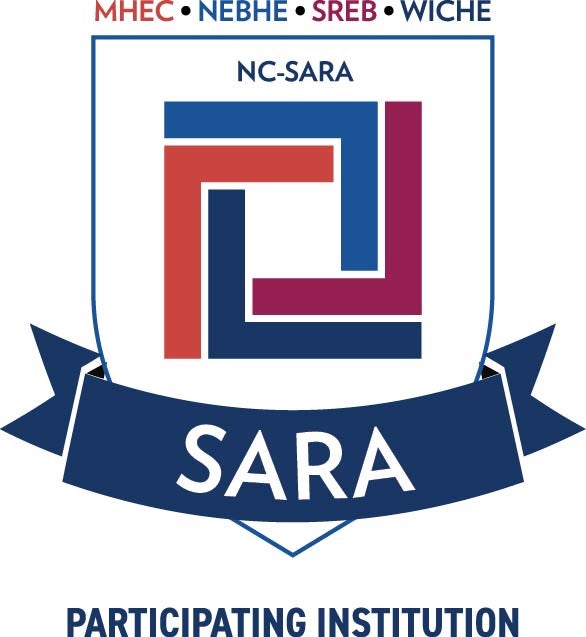
The National Council for State Authorization Reciprocity Agreements (NC-SARA) is an agreement amongst member states, districts, and territories that establishes comparable national standards and streamlines regulations, fees, and approvals for institutions offering interstate distance education programs. NC-SARA makes it easier for students to access distance education programs across state lines, and provides a set of uniform policies for student consumer protections that otherwise would vary state by state. Muskegon Community College (MCC) voluntarily participates in this program.
As of August 12, 2016, eleven states are participating in the Midwestern State Authorization Reciprocity Agreement (M-SARA): Illinois, Indiana, Iowa, Kansas, Michigan, Minnesota, Missouri, Nebraska, North Dakota, Ohio, and Wisconsin. Similar agreements have been approved by all four regional higher education compacts to tie them together into an inter-regional agreement overseen by a national council, thereby creating a nationwide framework for interstate reciprocity and simplifying the state authorization process for interstate offering of postsecondary distance education courses and programs
In collaboration with the Midwestern Higher Education Compact (MHEC) and the National Council for State Authorization Agreements (NC-SARA), the M-SARA Regional Steering Committee establishes and disseminates criteria for state participation and amends such criteria, as appropriate, over time.
Professional Licensure
Muskegon Community College is approved to offer programs that may lead to licensure in the state of Michigan. Muskegon Community College cannot state that our online programs will lead to licensure in other states. If you are planning to enroll in a program with the intention of earning licensure in a state other than Michigan, you should contact the licensing agency in the appropriate state prior to enrollment in the program at Muskegon Community College
Student Complaint Process
Every student deserves a positive educational experience. Sometimes a student’s experience may not be what they anticipate, and the student may have a concern or a complaint.
Educational Technology Organization of Michigan (ETOM)
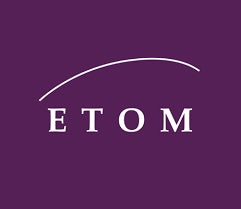
MCC is a member of ETOM: The Educational Technology Organization of Michigan. This is a “non-profit organization dedicated to the use of instructional technologies in higher education with an emphasis on distance learning.” Many MCC instructors have Online Teacher Certifications through ETOM.
Association of College and University Educators (ACUE)
MCC partners with ACUE: The Association of College and University Educators. ACUE “offers the only teaching certification endorsed by the American Council on Education. Certifying faculty in ACUE’s Effective Teaching Practice Framework is proven to propel students’ success, increase retention of first-year students, and lower DFW rates.” Many MCC instructors have a full or partial certification through ACUE.
Copyright Compliance
The U.S. Copyright Office governs the use of copyrighted material, and Muskegon Community College supports these laws.
Accreditation & Federal Funding
Muskegon Community College has been accredited or approved by the Higher Learning Commission (HLC) since 1929. Accreditation is important because it assures the public of the integrity and quality of MCC’s programs and services, enhances the College’s ability to hire highly qualified faculty and staff, enables students to obtain financial aid and veterans services, and allows the College to receive funding through federal grants.
Resources and Support Services for Students
Students who choose online learning can take advantage of all of the student resources available at MCC.



